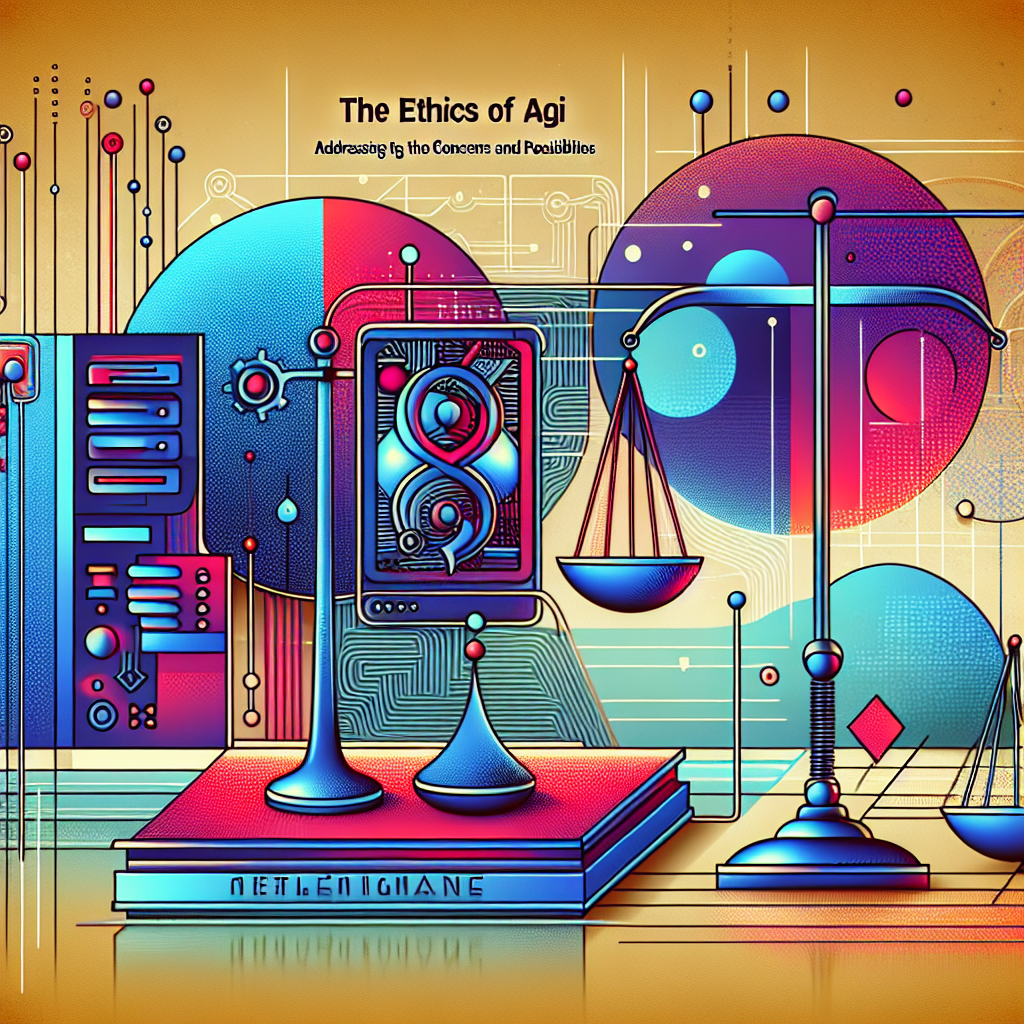As artificial intelligence (AI) continues to advance at a rapid pace, the development of artificial general intelligence (AGI) is becoming more of a reality. AGI refers to a type of AI that possesses human-like cognitive abilities, such as reasoning, problem-solving, and learning. With the potential for AGI to surpass human intelligence, there are growing concerns about the ethical implications of this technology.
In this article, we will explore the ethics of AGI, addressing the concerns and possibilities that come with the development of this powerful technology. We will also provide a FAQ section at the end to address common questions and misconceptions about AGI.
The Concerns of AGI
One of the primary concerns surrounding AGI is the potential for it to surpass human intelligence and become uncontrollable. If AGI were to become self-aware and autonomous, there is a fear that it could pose a threat to humanity. This scenario, often referred to as the “singularity,” raises questions about the safety and security of AGI.
Another concern is the impact that AGI could have on the job market. With the ability to perform tasks more efficiently and accurately than humans, AGI could lead to widespread job displacement and economic disruption. This raises questions about the ethical implications of creating technology that could potentially harm society.
There are also concerns about the potential for AGI to be used for malicious purposes. If AGI were to fall into the wrong hands, it could be used to carry out cyber attacks, surveillance, and other harmful activities. This raises questions about the responsibility of developers and policymakers to ensure that AGI is used ethically and responsibly.
The Possibilities of AGI
Despite the concerns surrounding AGI, there are also many possibilities for this technology to benefit society. AGI has the potential to revolutionize various industries, such as healthcare, finance, and transportation. With the ability to analyze vast amounts of data and make complex decisions, AGI could lead to breakthroughs in medical research, financial forecasting, and autonomous driving.
AGI could also help address some of the world’s most pressing challenges, such as climate change, poverty, and disease. By harnessing the power of AGI, researchers and policymakers could develop innovative solutions to global problems and improve the quality of life for people around the world.
Additionally, AGI has the potential to enhance human capabilities and improve our understanding of the world. By working alongside AGI, humans could benefit from its ability to process information quickly and accurately, leading to new insights and discoveries in various fields.
The Ethics of AGI
As the development of AGI continues to progress, it is essential to consider the ethical implications of this technology. There are several key ethical principles that should guide the development and deployment of AGI, including transparency, accountability, and fairness.
Transparency is crucial to ensure that AGI systems are designed and operated in a way that is understandable and explainable to humans. Developers should strive to create AGI systems that are transparent in their decision-making processes and provide insights into how they reach their conclusions.
Accountability is another important ethical principle that should be considered when developing AGI. Developers and policymakers should establish mechanisms for holding responsible parties accountable for the actions of AGI systems. This could include implementing regulations, standards, and oversight mechanisms to ensure that AGI is used ethically and responsibly.
Fairness is also a key ethical consideration when it comes to AGI. Developers should strive to create AGI systems that are fair and unbiased in their decision-making processes. This includes ensuring that AGI systems do not perpetuate existing biases or discriminate against certain groups of people.
FAQs
Q: Will AGI surpass human intelligence?
A: It is possible that AGI could surpass human intelligence in certain domains, such as data analysis and problem-solving. However, the extent to which AGI will surpass human intelligence is still uncertain.
Q: What are the risks of AGI?
A: The risks of AGI include the potential for it to become uncontrollable, pose a threat to humanity, and be used for malicious purposes. It could also lead to job displacement and economic disruption.
Q: How can we ensure that AGI is used ethically?
A: To ensure that AGI is used ethically, developers and policymakers should prioritize transparency, accountability, and fairness in the design and deployment of AGI systems. This includes establishing mechanisms for accountability and oversight to prevent misuse of AGI.
Q: What are the benefits of AGI?
A: The benefits of AGI include its potential to revolutionize various industries, address global challenges, and enhance human capabilities. AGI could lead to breakthroughs in medical research, financial forecasting, and autonomous driving.
In conclusion, the development of AGI presents both concerns and possibilities for society. While there are legitimate ethical concerns about the safety, security, and impact of AGI, there are also many possibilities for this technology to benefit humanity. By prioritizing transparency, accountability, and fairness in the development and deployment of AGI, we can ensure that this powerful technology is used ethically and responsibly for the greater good of society.

